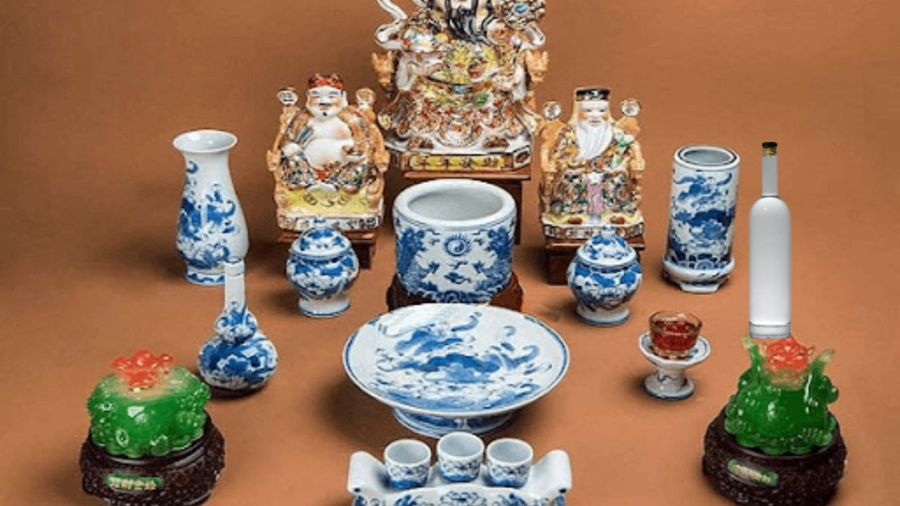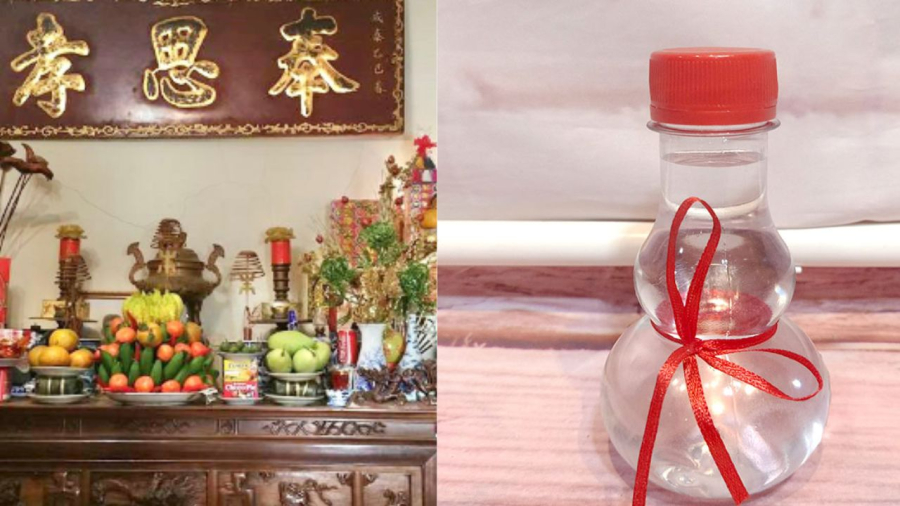The Modern-Day Ritual of Offering Wine: A Sign of Disrespect?
Offering Wine in Modern Times: A Controversial Practice
Wine, a product refined from the essence of rice, holds cultural significance in Vietnam. Ancestral rituals and offerings typically involve the presentation of high-quality wine as a mark of respect. However, in contemporary times, a troubling trend has emerged, with some individuals opting for symbolic wine bottles from funeral offerings, known as &8220;hang ma.&8221; These bottles often contain a mixture of chemicals and water, unfit for consumption, and solely intended for ritualistic purposes, ultimately poured into the ashes of burnt joss paper.
This modern practice of offering wine bears resemblance to the act of presenting fake items during ancestral worship. While it may offer convenience to the host, it falls short in terms of spiritual significance and reverence for ancestors. From a spiritual and feng shui perspective, offering fake wine is considered inauspicious and disrespectful.

Wine: A Common Offering
When it comes to ancestral worship, it is essential to understand that the act of offering fake items is considered disrespectful and pointless. The purpose of such rituals is to teach gratitude and honor traditions. While the quality of the offering may vary, it is crucial to maintain authenticity. Therefore, if one cannot offer fine wine, it is still advisable to present genuine wine, which can also be consumed after the ritual.
It is worth noting that some families opt for various types of Western-style wines for their rituals. While this practice is not inherently wrong, it is preferable to uphold traditional values by offering Vietnamese wine during ancestral worship.
Buddhist Altars and the Prohibition of Wine Offerings
While wine is derived from rice and holds cultural significance, it can also have detrimental effects on individuals and their spiritual well-being. Countless families have suffered due to the excessive consumption of wine, as it can alter one&8217;s state of mind and behavior. In Buddhist culture, adherents are taught to refrain from drinking, producing, or selling wine. This discipline is believed to enhance one&8217;s spiritual practice. Therefore, offerings presented to Buddha should be vegetarian and conducive to mental clarity. As such, offering wine is considered inappropriate and taboo.

Avoid Using &8220;Hang Ma&8221; Wine
Offering Fake Wine to Deities: Inviting Rebuke
Wine is traditionally offered to deities, saints, and divine mothers. However, it is crucial to approach these offerings with sincerity and caution. In spiritual practices, deities are believed to offer protection and blessings but also possess the capacity to reprimand and punish wrongdoings. Therefore, when presenting offerings to these divine beings, it is essential to ensure authenticity and quality. Instead of offering symbolic wine bottles filled with chemical mixtures, one should opt for genuine, consumable wine.
From a spiritual and feng shui perspective, it is advisable to refrain from offering symbolic bottles of wine to deities. In such cases, it is better not to offer anything at all rather than present inferior and fake items.
Wine holds a unique place in Vietnamese culture, representing both a cultural artifact and a potentially harmful substance. As a result, perceptions and practices surrounding wine have evolved, although it remains an integral part of traditional rituals. While some families continue to offer wine during ancestral worship, they may not consume it themselves, leading to the purchase of convenient but questionable &8220;hang ma&8221; wine bottles. This practice warrants caution and spiritual discernment.
Disclaimer: This article is for reference only and should not be solely relied upon for decision-making without further research or consultation.






























